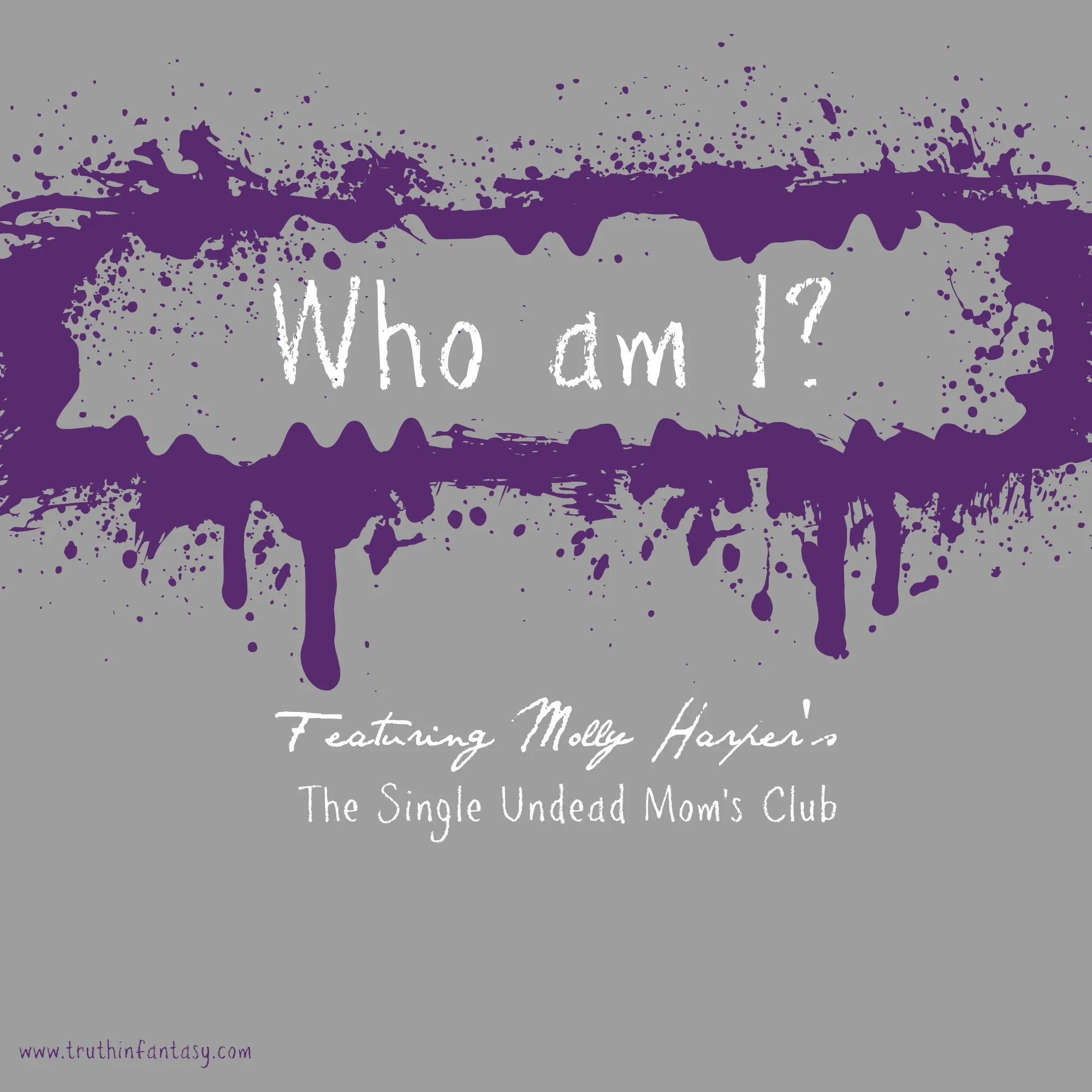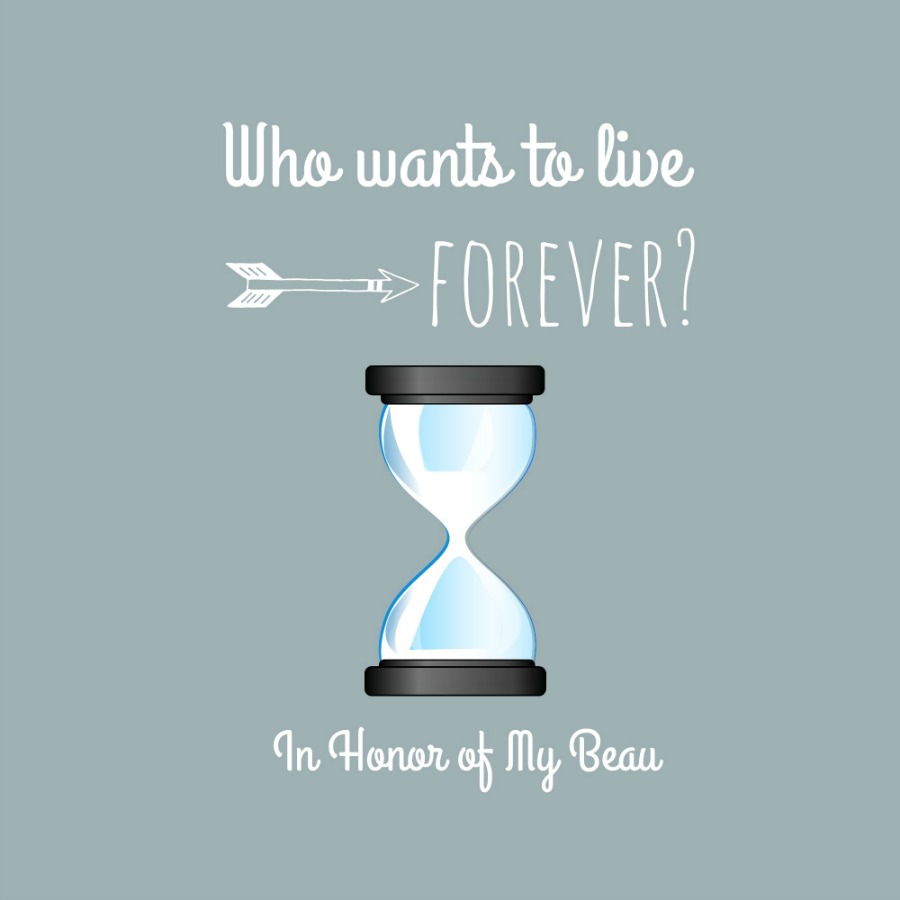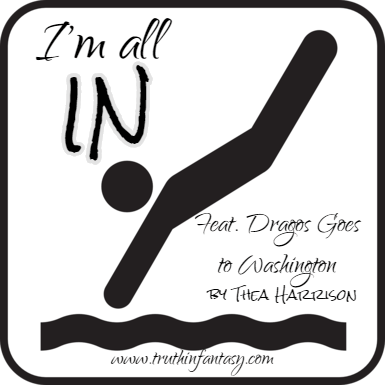I am the mother of almost 16 year-old twin boys. They're good boys, and I love them beyond reason. I like to think that I've learned a thing or three over the years. I also like to think that I do a reasonably good job as a parent. What I didn't think was that I'd be offered parenting advice from one of my wonderful paranormal fantasy novels. But I would have been wrong about that. I've just finished Molly Harper's fourth installment of her Half Moon Hollow series, The Single Undead Mom's Club, which I wrote about here. Fun read. Halfway through, I was struck by a piece of wisdom voiced by Wade, the hot, single, human dad who has feelings for the newly undead widowed mom, Libby. Wade explained to Libby, "Bein' a parent is a constant cycle of gettin' yer ass handed to ya. Anytime you think you're ahead of the game, that you got it all figured out, that's when reality pops up and bites ya."
ard to believe that I'm listening to some fictional Kentuckian who dates a vampire tell me what parenting is all about. Well, maybe not that hard to believe because, damn, he's right. Parenting is exactly like getting your ass handed to you. Regularly. Tell me again who thought it was a good idea to have kids? Oh, yeah, it was me. Worked hard to get them too.
Parenting is the most humbling experience I've ever had. I used to lie on the floor of my closet in a fetal position with my thumb in my mouth, reduced to a blubbering mess contemplating the enormity of the task. Who the hell were we, my husband and I, to think we could raise these children to be well-adjusted, contributing members of society? One could argue that we weren't. Well-adjusted, that is. We'd both had issues with our parents, and didn't want to model our behavior on theirs. So we had no road map for what to do.
And children are so needy. There are the physical demands of rearing infants and toddlers (sleep was more precious than gold, glory or sex--in those days, I would have traded my soul for a six-hour block of sleep-- with no interruptions). And later, as in right this minute for me, we have the emotional roller coaster that constitutes the teenage years. All I can say is, "Fasten your seat belts, it's going to be a hell of a ride."
As I contemplate the state of being the moral compass, teacher, disciplinarian, font of all wisdom (it's possible my boys would question that last one… unless they’re laughing uproariously), provider of unconditional love and number one cheerleader for these incipient adults, I am in complete agreement with Wade. Parenting is 100% about having my ass handed to me. Recently, I was that annoying smug mom who was so sure her kids were pure as the driven snow while everyone else's children looked more like the stuff found on the streets of New York. And then I came home unexpectedly one evening to find my boys essentially peeing in that previously white snow. I got my ass handed to me big time and was forced to open my eyes to the reality of my kids--not the fantasy I'd created in my mind where my super parenting skills had reared children who made excellent choices each and every time they were presented with situations that challenged their sense of right and wrong versus fun and pleasurable. Yeah, right. I'm sure there were other parents enjoying the schadenfreude of seeing me plummet from my high horse.
Pride cometh before the fall. Parenting is the one institution guaranteed to make us aware of our human imperfections. Which of course sucks badly, as parenting is the one job that we absolutely, positively must get right. The stakes are so, so high, the penalties for failure so extreme that I can almost choke on the pressure. It can be paralyzing. But doing nothing as a parent is the same as doing something bad, at least most of the time, so we march on….
Getting our asses handed to us again and again. And Wade was also right in noting that there is no such thing as getting on top of the situation. The second--no the microsecond that happens, the sands shift, the world tilts, and the whole landscape is completely different … leaving me scrambling to understand where we are and learn the new rules of the road. It's exhausting.
And rewarding. And terrifying. And gratifying. Every day I question my judgment in choosing to walk this path. And every day I thank God that I was chosen to shepherd these amazing, exasperating, magnificent and gloriously aggravating beings into existence as citizens of the world. I'll take my ass in my hands again and again for that privilege.



















